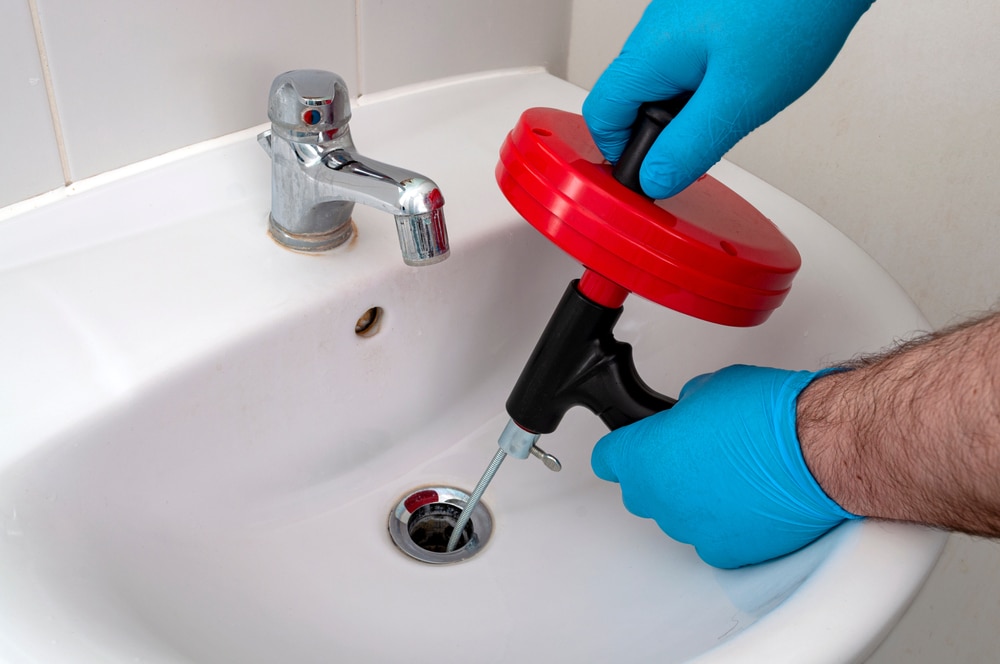When it comes to household maintenance, there are some tasks that we tend to overlook until it’s too late. One of these tasks is drain cleaning. Most of us don’t think about the importance of keeping our drains clean until we experience a clog or backup. However, regular drain cleaning is a crucial part of maintaining a healthy and functional plumbing system. Not only does it prevent clogs and backups, but it also has a host of other benefits that can save you time, money, and stress in the long run. In this article, we’ll explore the many benefits of regular drain cleaning, from improved water flow and reduced odors to increased lifespan of your pipes and fixtures. So, let’s dive in and discover why this simple task is so essential for your home’s plumbing system.
Why is regular drain cleaning important?
If you’ve ever had to deal with a clogged drain or a backed-up sink, you know how frustrating and inconvenient it can be. However, clogs and backups are not the only reasons why regular drain cleaning is important. Here are some of the other benefits you can enjoy when you make drain cleaning a regular part of your household maintenance routine:
Avoiding clogged drains and backups
The most obvious benefit of regular drain cleaning is that it helps prevent clogs and backups. Over time, debris such as hair, soap scum, and food particles can build up in your drains and cause blockages. When this happens, water will start to back up and eventually overflow, causing damage to your fixtures and pipes. By cleaning your drains regularly, you can remove these blockages before they become a problem and avoid costly repairs.
Reducing the need for costly repairs
Clogs and backups are not the only problems that can occur when you neglect your drains. Over time, the buildup of debris and other materials can cause corrosion and other damage to your pipes and fixtures. This can lead to leaks, burst pipes, and other costly repairs. By cleaning your drains regularly, you can remove these materials before they cause damage and prolong the lifespan of your plumbing system.
Improving indoor air quality
Dirty drains can also contribute to poor indoor air quality. When debris and other materials build up in your drains, they can start to emit foul odors that can spread throughout your home. This can be particularly problematic in bathrooms and kitchens, where drains are used frequently. By cleaning your drains regularly, you can reduce the buildup of these materials and improve the air quality in your home.
Protecting the environment
When you neglect your drains, you’re not just putting your plumbing system at risk – you’re also contributing to environmental pollution. When clogs and backups occur, wastewater can spill out of your pipes and into the environment. This can contaminate water sources and harm wildlife. By cleaning your drains regularly, you can prevent these spills and do your part to protect the environment.
How often should you clean your drains?
Now that you know why regular drain cleaning is important, you may be wondering how often you should do it. The answer depends on several factors, including the age of your plumbing system, the frequency of use, and the types of materials that go down your drains. As a general rule, it’s a good idea to clean your drains at least once a year. However, if you have an older plumbing system or use your drains frequently, you may want to clean them more often.
DIY drain cleaning methods
If you’re comfortable with DIY projects, you can clean your drains yourself using a few simple tools and materials. Here are some of the most effective DIY drain cleaning methods:
Baking soda and vinegar
Baking soda and vinegar is a classic DIY drain cleaning solution that’s both effective and environmentally friendly. To use this method, simply pour a cup of baking soda down your drain, followed by a cup of vinegar. Let the mixture sit for a few minutes, then flush it out with hot water.
Boiling water
Boiling water is another simple and effective drain cleaning method that you can do yourself. Simply boil a large pot of water, then pour it down your drain in stages, allowing the water to work its way through the pipes between each pour.
Plunger
A plunger is a simple tool that can be used to unclog drains quickly and easily. To use a plunger, simply place it over the drain and push down firmly. Then, pull up sharply to create a suction that will dislodge any debris.
Professional drain cleaning services
If you’re not comfortable with DIY drain cleaning or have a more serious clog or backup, you may need to call in a professional. Professional drain cleaning services use specialized equipment and techniques to remove even the toughest clogs and buildup. Some of the most common methods used by professionals include:
Hydro jetting
Hydro jetting is a process that uses high-pressure water to blast away clogs and buildup in your pipes. This method is particularly effective for removing stubborn blockages and can be used on a variety of different types of pipes.
Drain snaking
Drain snaking is a process that uses a long, flexible cable with a blade attached to the end to remove clogs and buildup from your pipes. This method is particularly effective for removing tree roots and other tough materials.
Sewer camera inspection
Sewer camera inspection is a process that uses a specialized camera to inspect the inside of your pipes for clogs and damage. This method is particularly useful for identifying the root cause of a problem and determining the best course of action.
Conclusion: The importance of regular drain cleaning
As you can see, regular drain cleaning is an essential part of maintaining a healthy and functional plumbing system. From preventing clogs and backups to improving indoor air quality and protecting the environment, there are many benefits to making drain cleaning a regular part of your household maintenance routine. Whether you prefer to do it yourself or call in a professional, the key is to make sure you’re doing it on a regular basis to keep your plumbing system in top shape. So, next time you’re thinking about household maintenance, don’t forget about your drains – your plumbing system (and your wallet) will thank you.



















